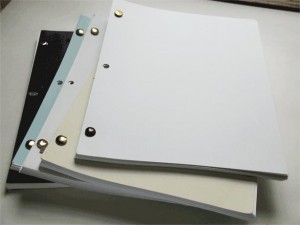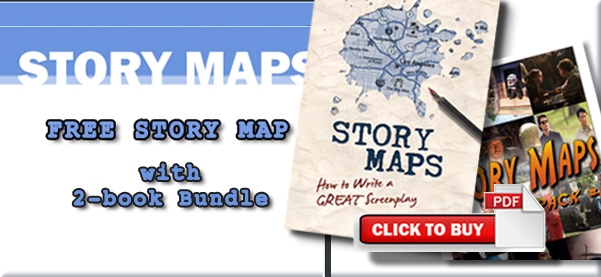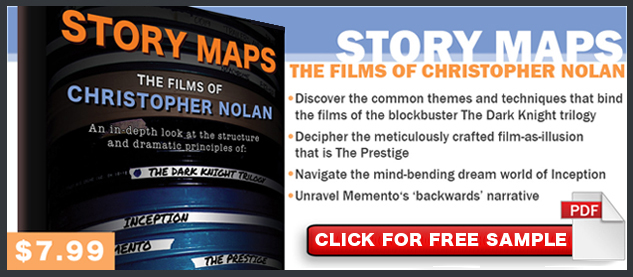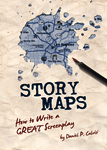script screenplay
Are you writing a “script” or a “screenplay?” Is there a difference between the terms script and screenplay?
Screenplay vs. script. Which is it?

Exhibit A: “Script”

Exhibit B:”Screenplay”
The short answer is that they usually mean the same thing and are interchangeable, but it can get confusing when you’re talking about different mediums. It’s always best to be as specific as possible when discussing your script/screenplay — we want to know if this is for a movie, a TV show, a short, a webisode or a stage play.
One of my pet peeves is when people say “my movie” when they’re talking about their screenplay. It’s not a movie yet, it’s a screenplay. Or a script. Or both.
So which is it?!
The short answer is this…
All screenplays are scripts, but not all scripts are screenplays. To clarify…
A screenplay is always written to be played on a screen — movie, television or computer screen. But a script may also apply to a stage play, a video game, a radio program or computer programming script, so make sure you’re clear in your pitch.
Now to make matters a bit more complex, you have to know about the term “spec,” which applies to a screenplay or script that is written to be sold to an outside buyer without any upfront money paid to the writer; i.e., it’s written on speculation, the hope that the thing will sell so the writer can stop slinging mochaccinos for a living. That’s easy to understand, but keep in mind that a spec can apply to a feature (movie) script or to a television script (which are most often broken into two categories: sitcom or one-hour drama).
So, let’s say you finally get that successful Manager on the phone and they ask, “Can I read your best spec?” you better know if they want your single-camera sitcom or your sci-fi thriller feature! This is why it’s best to do your homework before you market your work, and compile a targeted list of agents, managers, producers and studios that make your type of script. Reps tend to focus on either film or TV, but not both, so use your best online resources, like IMDbPro to educate yourself before you call or email.
One last thing: you’re not a “scriptwriter,” you’re a screenwriter. No one uses the term scriptwriter. And scriptwriter sounds too close to script writer, which can denote a computer programmer. This becomes a problem on the internet. Check out the Google search for “script” — the first result is the Wikipedia definition for computer programming and the second is Script Magazine. See what I mean? (Wait, did someone say Script Magazine? Did that very same someone mean the publication that had nice things to say about that cutting-edge screenwriting book, Story Maps: How to Write a GREAT Screenplay?).
And, for the record, I’ve never heard anyone in the industry use the term teleplay, either, but maybe I just don’t hang in the hippest circles (or live in 1984).
Here’s a list of more industry lingo for your perusal. Crucial terms for the screenwriter to know…
SPEC – A screenplay written on speculation with the goal of selling it when it’s complete. Can also be used as a verb, as in, “are you going to spec that idea or pitch it?”
PITCH – A verbal telling of a movie idea. With an original idea, the goal is usually to get someone to pay you to write the script so you don’t have to spec it. You also pitch to get assignments.
ASSIGNMENT – A job that involves doing a draft on a project the studio already owns, such as a rewrite or adaptation.
OPEN WRITING ASSIGNMENT (OWA) – An assignment for which the studio is actively looking for a writer.
OPEN DIRECTING ASSIGNMENT (ODA) – An assignment for which the studio is actively looking for a director.
TAKE – Your unique perspective on an idea. Example: “That writer pitched a great take on the book adaptation.” Crucially important to get an assignment.
SAMPLE SCRIPT – A script sent out as a writing sample to show what the writer is capable of. Usually not intended to sell (it may even have already been made). Ought to be in the same genre as the job the writer is trying to get.
PITCH BOOK (aka: Look Book) – A book with photos and art – often culled from outside sources, sometimes original – that is used to show the tone and look of a movie during a pitch. Common for director pitches, rare for writer pitches.
SIZZLE REEL – A short film, usually no more than three minutes, of footage usually culled from outside sources that gives a sense of the tone and style of a project. Common for director pitches, rare for writer pitches.
GENERALS (Meetings) – Get-to-know-you meetings without a specific purpose. Usually you get these because someone read a script of yours that they liked but didn’t want to buy (so you go on the “water bottle tour” of various offices around town, thus named because they give you a free bottle of water. Don’t let anyone tell you Hollywood is cheap!) You should always have a a few new pitches for when they ask “So what else you got?”
HIGH CONCEPT – A movie idea with a dynamic “hook” that can be easily summarized in a compelling sentence. Execs like this because it means the movie will be easy to sell. If they get it in one sentence, so will the public.
LOW CONCEPT (aka: Small or “Soft” Concept) – A movie idea that requires lots of explanation to make its appeal apparent.
EXECUTION DEPENDENT – An idea that depends on quality execution to be successful. Hard to sell as a pitch, probably must be spec’d. Most low concept ideas are execution dependent.
LOGLINE – A one-sentence description of the movie concept that captures what it is. A lot easier to create for a high concept movie. Often used on Tracking Boards and in Coverage.
TRAILER MOMENT – A really cool moment or line of dialogue that you can easily imagine in the movie’s trailer. You want at least a couple of these in your pitches and you better have several in your screenplay.
FRANCHISE – A concept or property that is big enough in scope to spawn sequels, merchandising, comic books, video games, etc. Studios like these.
BABY WRITER – A new writer, regardless of age.
SET PIECE – A big spectacular scene, usually comedy or action. Example: “The script is full of huge set pieces but has no character development.”
PRODUCERS POLISH/COURTESY POLISH – Polite term for a free revision done without pay based on producers’ notes before turning a draft in to the studio. Used to be customary to do a single pass that involved a day or two of work. Nowadays has been abused to mean multiple major rewrites from writers who know how hard the market is right now.
DIFFICULT – What producers and development execs call writers who stand up for themselves.
PACKAGING – When an agency puts together multiple elements of a movie – script, director, stars and sometimes even financing – before taking the project to the studio. Agencies get a fee from the studio for doing this. Usually only the biggest agencies can package a movie or television series.
BOUTIQUE AGENCY/MANAGEMENT CO. – Smaller agency often specializing in only a few areas (For example: TV writers and directors or comedy).
I hope that helps clear up some questions for you, intrepid screenwriter. Here’s some links if you’re interested in learning more about my method and how I can help you to develop a GREAT screenplay.
Good Luck and Happy Writing,
Dan Calvisi
Related: Don’t Pay for Script Coverage
Related: Don’t Suck, Suck in the Reader!
Related: Choosing a Script Service or Screenplay Consultant
Related: The Wrestler FREE Story Map sample
Related: Black Swan FREE Story Map sample
“There is a lot of great advice here…
Most important, as I read Calvisi’s Story Maps,
I was inspired to rethink my current project.
And that’s what it’s all about, right?”
-Script Magazine




Useful info. Had not realized I have to first choose the medium I’m writing for and then use the lingo for the pitch that applies to that. Also, since my story includes a pitch, it’ll affect the language within the text even more. Thanks.